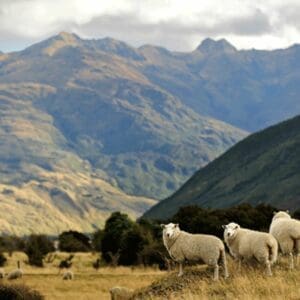Wool, like everything people produce and use, affects the environment in some way.
Groups and individuals interested in sustainability naturally want to understand how wool affects the world around us and to make informed choices accordingly.
The wool industry is dedicated to making wool’s environmental qualities more understandable and accessible. IWTO and its members regularly invest in scientific research so that wool’s environmental credentials can be quantified and communicated.
Find the latest wool research on our Wool Science page.
 Key facts about wool sustainability
Key facts about wool sustainability
-> Sheep are part of the natural carbon cycle, consuming the organic carbon stored in plants and converting it to wool. Fifty per cent of the weight of wool is pure organic carbon.
->Wool products have long lifespans, meaning they are used or worn longer than other textile fibre products
->Wool textile products tend to be washed less frequently at lower temperatures which has a lower impact on the environment
->Wool is readily recyclable: 6% of the total wool market is recycled, much higher than other fibre types
->Wool biodegrades readily on land and in water – as a protein-based fibre, wool does not contribute to microplastic pollution
